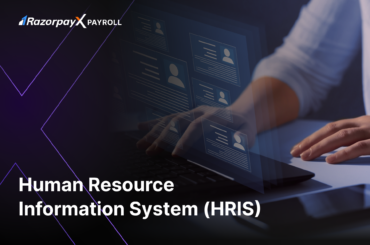What makes a company successful? The product or service? The location or the founders? There is a good chance that you answered something on these lines. But you are only halfway there!
It’s the PEOPLE who make or break the success of a company. And when you are the one in charge of choosing these people, it can get overwhelming and pressurising.
From managing employees, looking after timely payrolls, creating company policies to hiring new talents, you have too many irons in the fire that need your attention. With so many HR responsibilities on your shoulder, chances of making a mistake are high.
In this blog, we will discuss 7 common HR mistakes by new small businesses and how you can avoid them.
Not having an HR plan in place
Starting a business without an HR plan is a huge risk. Without a plan, you’ll be making arbitrary decisions in several directions that may not take your business forward.
Follow the example of big company leaders in your industry or niche and develop a people strategy that’d help you achieve your business’s goals. There’s no need to reinvent the wheel here.
Having an HR plan will help you determine what your staffing needs are; how many employees you’ll have onboard, the first departments you need to set up, etc. It also gives you time to think about things like HR policies and procedures.
Not using an employee handbook
Having an employee handbook may seem like overkill, but it’s actually one of the most important tools for any small business to have in place. Without an employee handbook, staff members are left guessing what they should do and should not do at the company especially for newcomers.
An employee handbook acts as a manual that guides the conduct of employees in a company. It is specific to each company and helps control the expectations of employees.
There are many ready-made employee handbook templates you can utilize without starting from scratch. With the handbook in place, your employees will have a clear understanding of expectations, processes, policies and procedures.
Not having an adequate hiring process
When you’re new to HR, it can be difficult figuring out where and how to hire. You may be using poor job descriptions because you don’t have enough information on the hiring process or what kind of recruitment methods your business will need in order to get the best candidates for a position. As a result, there is a high risk of hiring poor-quality employees who may not be a good fit for your company culture.
The key to a successful hiring process is having enough information on what resources you’ll need and the recruitment methods that will work best for your business. You should also have an idea of what skills are needed, how many people you may hire in the foreseeable future or if there are certain positions where it’s necessary to post externally (e.g. for an executive position).
There are many HR tools and resources available to help you out with the hiring process. You may want to invest in a recruitment agency if your budget allows, or purchase HR software like Grove HR that’ll streamline your entire process of sourcing candidates, assessing them, and interviewing them.
Not providing proper training to employees
For many, training may seem like a waste of time and money as the employee will know how to do their job once they get onboard. However, it’s important that your employees know how to do their work and improve their skills effectively.
Providing training to your employees is also a good way of ensuring they stay with the company. It helps them feel valued as it shows that you care about their success and are taking the necessary steps to develop them personally and professionally.
The more satisfied the staff member, the lower turnover rates, so make sure you focus on training and developing your team!
Failing to provide proper onboarding
A good hiring process starts with the interview process, continues through orientation and culminates when they actually start working. Did you know that a solid onboarding process improves new hire retention by 82% and productivity by over 70%*?
There are many things that need to be done when an employee joins a new company, such as providing orientation information and setting up their workstation. Having an onboarding checklist will facilitate a smoother process and also help new employees feel more comfortable and welcome.
This checklist will provide the HR-in-charge, managers, and newcomers with a list of things to do and actions to take during the first days on the job, so your new hires can be productive sooner.
Not integrating a proper payroll system
Processing payroll is one of the most stressful yet complicated processes in HR. Handling payroll carelessly could lead to wrong salary calculations, unfair compensation, and eventually unhappy employees. Improper data documentation, misclassification of employees, payroll delays, etc are common mistakes businesses usually make.
An automated payroll solution is a way to go to avoid all these payroll and compliance mistakes. The system will store all relevant data in a centralized place and calculate exactly how much should be paid to each employee based on their salary structure and time worked. It also keeps clear records of employees’ wages and payout dates which helps avoid mistakes.
Tracking performance reviews solely based on ratings
Any business owner understands the importance of performance review. However, most of them are running it the old way.
Now, forward-thinking businesses like Netflix, Microsoft, or Google are adopting a new way of performance review to engage their employees better and drive longer-term success. We called it the “agile performance process”. This approach embraces the concept of comprehensive and continuous feedback.
Instead of evaluating an individual’s performance based on meaningless numbers, let feedback guide you including self-assessment, manager, and peer feedback. This will help the employee feel like they have a voice and there is a possibility of improvement in the future. This review should be taken seriously so make sure it leaves an impression on both parties involved: managers and employees.
Run your business smoothly and efficiently
The HR mistakes that are common for new business owners can be easily avoided as these simple tips will help you make sure your company doesn’t fall victim to the pitfalls of hiring inexperienced staff or managing employees without proper training.
It is critical that you take care of HR in order for operations at your organization to run smoothly and efficiently, so don’t let anything slip through the cracks.





